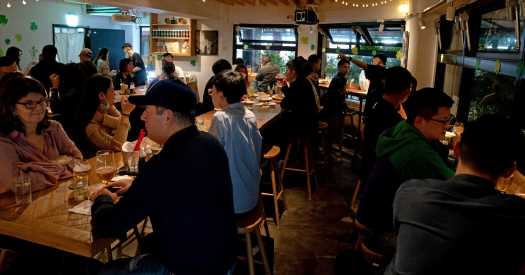TAIPEI, Taiwan — As the coronavirus has upended lives and economies around the world, Taiwan has been an oasis.
Every day, droplets fly with abandon in packed restaurants. Office buildings hum, and schools resound with the laughter of maskless children.
This island of 24 million, which has seen just 10 Covid-19 deaths and fewer than 1,000 cases, has used its success to sell something scarce: living without fear of the virus. The relatively few who are allowed to enter have been coming in droves, and they’ve helped to fuel an economic boom.
These Covid migrants, who are largely overseas Taiwanese and dual nationals, have included businesspeople, students, retirees and well-known figures. About 270,000 more Taiwanese entered the island than left it in 2020, according to the immigration authorities.
Taiwan’s borders have been mostly closed to foreign visitors since last spring. But highly skilled non-Taiwanese workers have been allowed in under a “gold card” employment program, which the government has aggressively promoted during the pandemic.
The influx helped make Taiwan one of last year’s fastest-growing economies — indeed, one of the few to expand at all. And the infusion of talent — including Steve Chen, the Taiwanese-American entrepreneur and co-founder of YouTube, who traded San Francisco for Taipei — has energized Taiwan’s tech industry.
While some aspects of pandemic life have permeated Taiwan’s borders — temperature checks and hand sanitizing are common, and masks are required in many public places (though not schools) — for the most part, the virus has been out of sight and out of mind, thanks to rigorous contact tracing and strict quarantines for incoming travelers.
But many wonder how long Taiwan’s status as a Covid-19 outlier can last, especially amid vaccine campaigns elsewhere. Officials have been slow to procure and distribute vaccines, in part because there has been so little need for them.
Source: Read Full Article





